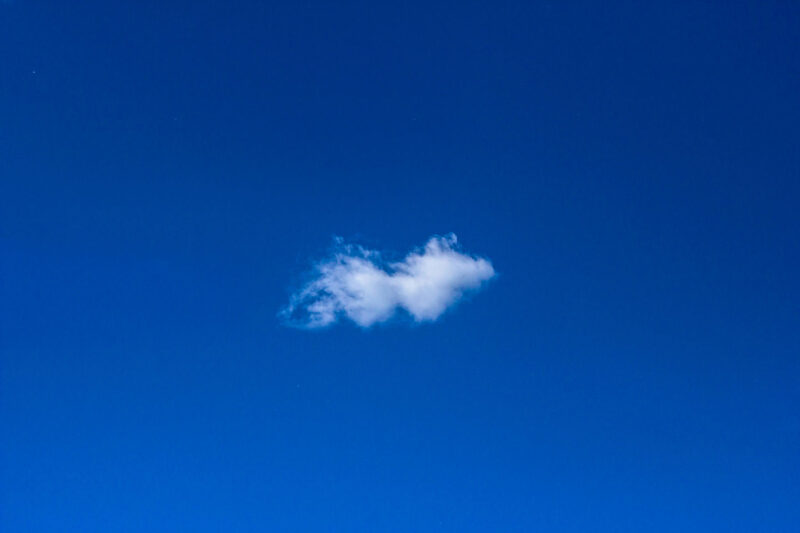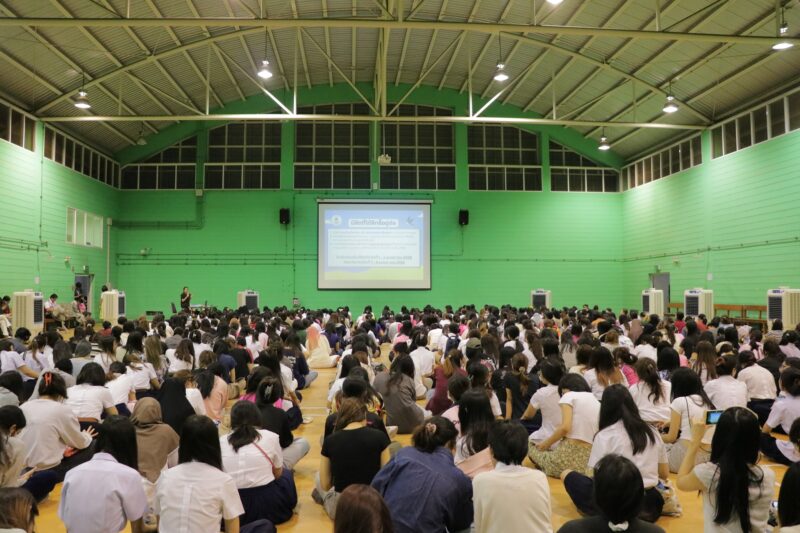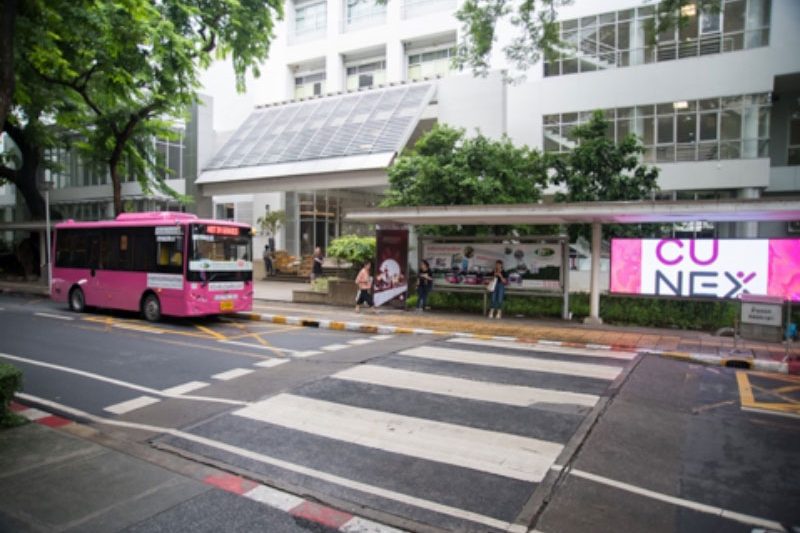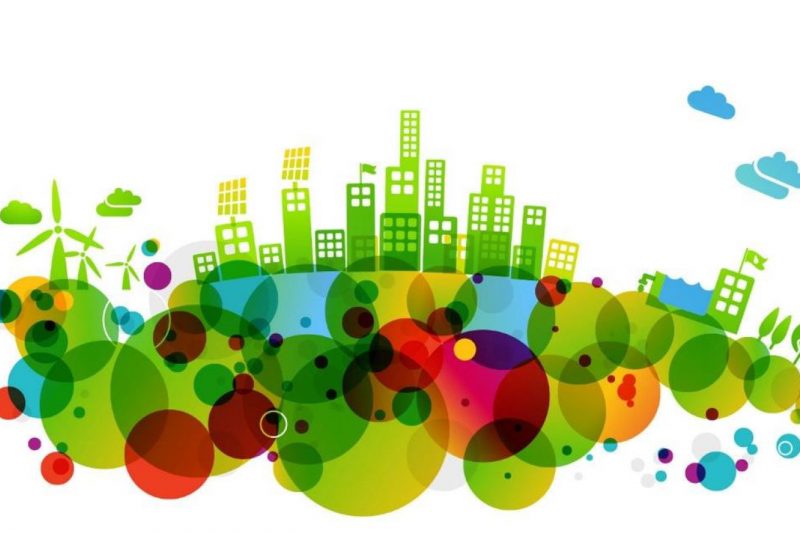Campus vending machines make safe drinking water available free to everyone
A million plastic bottles are bought around the world every minute, according to Forbes magazine. Over half a trillion plastic bottles will be sold in 2020, according to a Euromonitor International report on global packaging trends. The Guardian newspaper, meanwhile, reports that only about half of all PET plastic bottles are currently collected. The rest mostly end up in rivers and oceans, causing huge environmental damage.
Thailand is a major producer of plastic waste and the world’s sixth biggest contributor of plastic ocean waste. In 2018, the country generated 2.7 million tonnes of plastic waste, only one-quarter of which was recycled.
Among all plastic waste, the proliferation of bottled water has become a crisis, not just in Thailand but globally. Sales of water in plastic bottles are driven by health concerns, urbanized lifestyles and ease of handling and portability.
Joining the global movement toward waste reduction, Chulalongkorn University has been actively carrying out a “Green Chula” policy to promote innovations and practices that will sustain and protect the environment of the community and the planet as a whole.
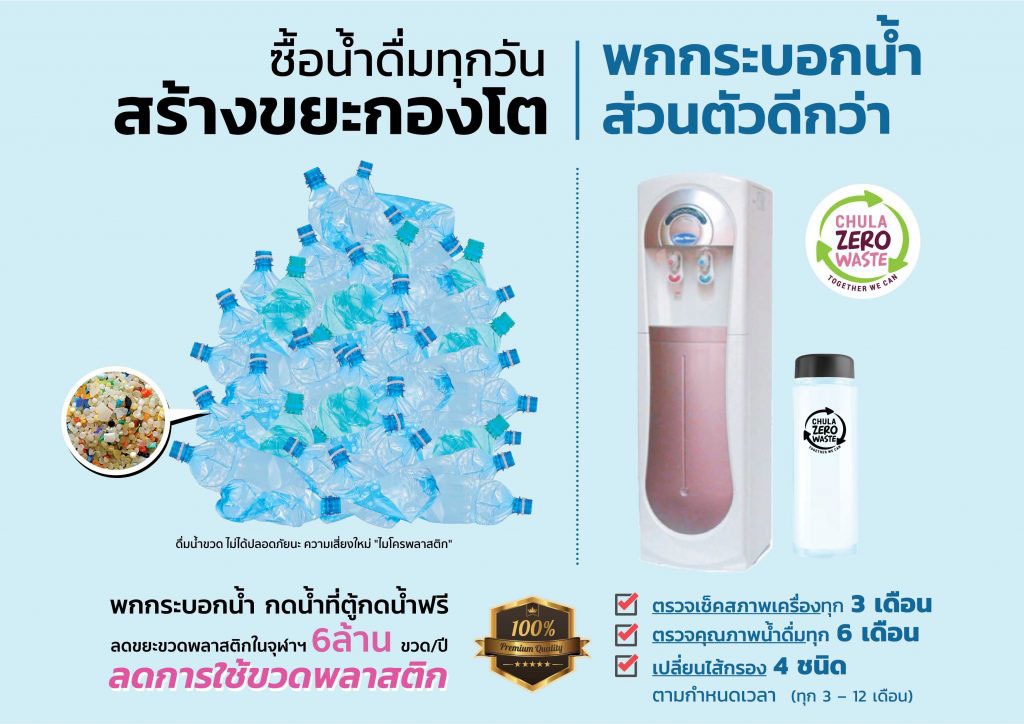
Under the Chula Zero Waste Project, a campaign to encourage the public to reduce bottled water consumption has been launched. It includes the installation of safe drinking water vending machines around the campus, especially in canteens and office buildings.
A three-year campaign by Chulalongkorn University aims to wipe out single-use plastic by 2021, university president Prof Dr Bundhit Eua-arporn has declared as part of the university’s commitment to the environments and sustainability.
Faculty members and students are encouraged to bring their own bottles to refill with water from the many water stations placed all over the campus. Over 40 new drinking water vending machines, attractively designed in a pleasing pink color, have been installed. These complement some 30 existing stainless steel drinking water dispensers. All water is available free of charge.
In line with the slogan of the Chula Zero Waste campaign, “Together we can”, the initiative aims to eliminate 6 million plastic bottles a year.
Water quality tests and maintenance are performed regularly to ensure it is safe for drinking. Filters are changed every three months, and water quality is tested every six months by a team from the Department of Environmental Engineering.
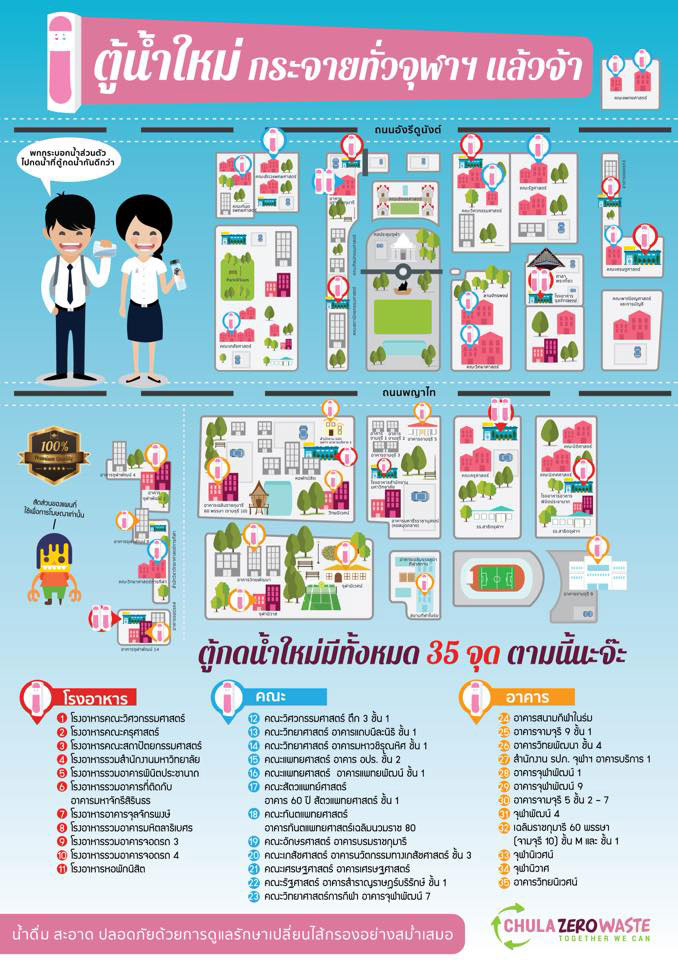
Using a microbial test kit called Compact Dry EC to detect E.coli and coliform, the team makes sure that drinking water quality meets the standards set by the Ministry of Public Health and the Department of Pollution Control. Those standards state that the E.coli count must be zero and coliform bacteria must be less than 2.2 per 100 milliliters of water. The test kit must show no indication of purple color for coliform or blue for E.coli in a one-milliliter water sample in order to pass the quality standard requirement.
To test for heavy metals, the team uses Inductively Coupled Plasma – Optical Emission Plasma (ICP-OES) analysis to detect contaminants including iron, manganese, copper and lead. Department of Pollution Control regulations state that iron must be less than 0.5 ml/L, manganese less than 0.3 ml/L, copper less than1.0 ml/L and lead less than 0.001 ml/L.
In a December 2018 quality test, drinking water from both types of dispensers passed the standards requirement, with no contamination from E.coli, coliform and heavy metals found. All drinking water vending machines have also undergone thorough maintenance checks to guarantee their water is safe for drinking at all times.
Original article: 16 May 2018 http://www.chulazerowaste.chula.ac.th/water-quality-in-chula/
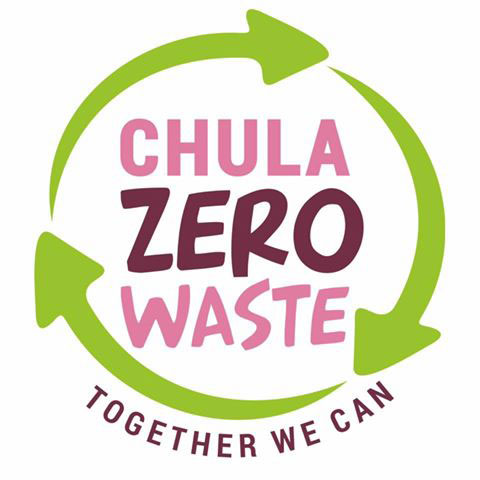
Previous:
Others

